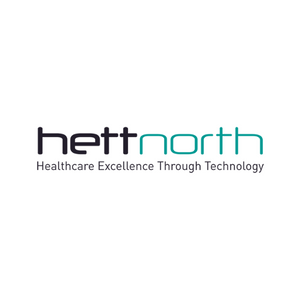The NHS’s elective recovery strategy includes an increase in the use of Patient Initiated Follow-up (PIFU), a solution designed to give patients control of their follow-up care and manage clinician time. But what exactly is PIFU, what are the benefits and does it really work?
What is PIFU?
PIFU describes when a patient or carer can initiate follow-up appointments when they need one.
Traditionally, patients with chronic conditions, or who have had surgery were offered follow-up appointments at routine intervals or a “fixed” schedule. Whereas, under PIFU, patients or their carers have the option to initiate care as and when they need it, rather than adhering to a pre-defined schedule. It means that patients can be seen quickly when they need to be when their symptoms or circumstances change, whilst avoiding the inconvenience of appointments with low clinical value.
PIFU is not a new concept and commonly goes by other names such as patient-led follow-up, supported self-managed follow-up and open access follow-up. Patient-initiated pathways can take many forms and therefore require different designs and implementations depending on factors such as the condition and the level of risk involved.
What are the goals of Patient Initiated Follow-up?
One of the main goals of PIFU is to better align clinical resources with patient needs, particularly as the number of patients waiting for specialist care continues to grow. In 2021-22, the total number of outpatient appointments stood at 124.9 million, an increase of 20% from the previous year. This increasing number of appointments is driving long waiting times, delayed appointments and rushed consultations.
The growing number of outpatient hospital appointments coupled with the growing waiting lists for specialist treatment has made the question of how to prioritise clinical time ever more urgent. This is where PIFU is brought in. By offering patients more control over the timing of their care, PIFU should help to reduce the number of unnecessary appointments and therefore reduce the number of missed or cancelled appointments. This should help to free up clinician time to deliver care to those in need and help to reduce the elective backlog.
Benefits of Patient Initiated Follow-up
Benefits to patients
- Empowers people to book appointments when they need them.
- Improves patients’ engagement with their health.
- Access to more responsive services due to improved management of waiting lists.
- Improves patient satisfaction.
- Reduces inconvenience and stress around unnecessary appointments that are not of real benefit to them.
Benefits to clinicians
-
Provides an opportunity to develop plans with patients.
-
Gives them the confidence that they are seeing the patients that need them the most.
-
Helps manage waiting lists and caseloads in an effective and safe way.
Benefits to providers and systems
- Predicted to reduce waiting times and lists due to the overall reduction in follow-up appointments.
- Works towards the delivery of the NHS Long Term Plan aim to reduce unnecessary outpatient appointments.
- Reduces ‘did not attends’ as patients decide when they need an appointment.
Does PIFU work and is there a future?
A review carried out by Nuffield Trust highlighted that whilst there was promising evidence that PIFU could result in fewer patient outpatient appointments, results were mixed across studies. The review conducted but Nuffield Trust examined the impact of PIFU on outpatient activity by looking at 15 studies published since 2015.
Amongst the 15, 8 showed that Patient Initiated Follow-up led to a statistically significant reduction in outpatient appointments compared to the traditional fixed follow-up. However, 7 of the studies found no difference between the two approaches.
The review also found that currently PIFU is having minimal impact on clinical outcomes for the 15 studies but may be having a small beneficial impact on patient satisfaction.
PIFU is set to be scaled up across the NHS, however it has been suggested that more research is needed to ascertain the true impact on patients and the delivery of care.
A future of connected data and digital systems could help scale up the opportunities derived from PIFU. There is an opportunity for PIFU to be integrated within the NHS app, or a third-party app, to help drive patient empowerment and engagement.
Find out more about Patient Initiated Follow-up at HETT North, 28th February 2024
Find out more about Patient Initiated Follow-up by registering for HETT North taking place on 28th February 2024 at Manchester Central Convention Complex. The packed full agenda includes a variety of CPD-accredited sessions from 100+ esteemed speakers.
HETT North is designed to enable meaningful collaboration across digital health and care and brings together 1,400+ digital health peers. Key highlights include:
- 40+ hours of CPD-accredited content across 5 content streams
- 100+ innovative supplies
- 1-2-1 meeting opportunities via the HETT Connect App
- 100+ expert speakers including Rahul Singal, Patricia Hughes and James Freed.
Photo by Tima Miroshnichenko: https://www.pexels.com/photo/high-angle-shot-of-a-person-making-a-zoom-call-to-a-doctor-8376171/
%20(1).png?width=500&height=58&name=HETT%20insights%20logo%20RGB-04%20(1)%20(1).png)


